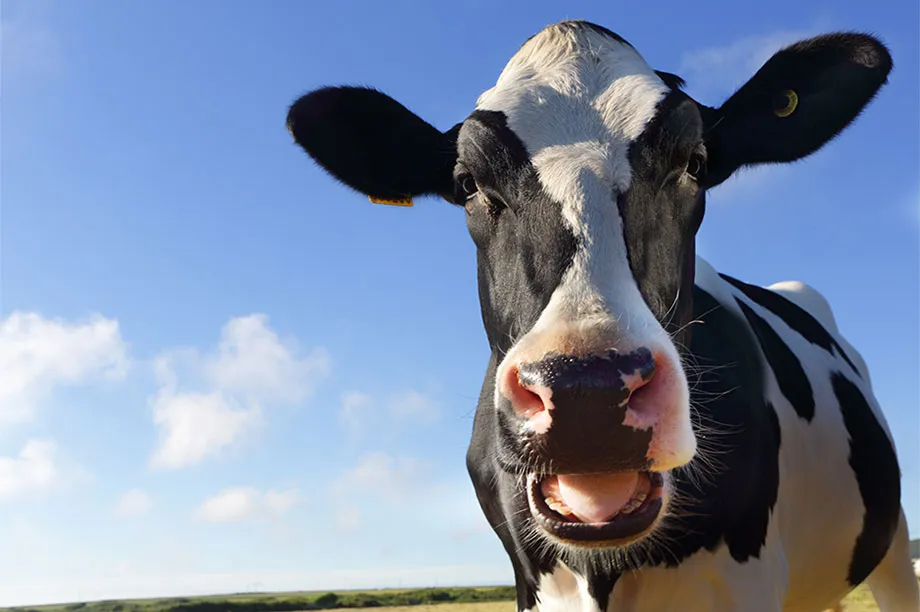If land currently used to produce meat and dairy was returned to its native ecosystems, it could remove the same amount of carbon dioxide (CO2) as was produced by burning fossil fuels over the last 16 years.
In a new study published in Nature Sustainability, researchers say that shifting global consumption away from animal products to a more plant-based diet would free up large areas of land. If native vegetation regrowth was encouraged, these areas could add to the fight against climate change by absorbing CO2 in the atmosphere.
Read more about greenhouse gases:
- 'Aggressive' greenhouse gas cuts needed to save polar bears
- The ocean captures twice as much carbon dioxide as previously thought
- Effects of emission cuts on climate change 'may take decades'
"Restoring native forests could buy some much-needed time for countries to transition their energy grids to renewable, fossil-free infrastructure,” said Matthew Hayek, an assistant professor in New York University and the principal author of the new study.
Livestock produce large amounts of methane, a greenhouse gas that is 28 times more powerful than CO2 at trapping heat. Many who call for meat consumption to be reduced cite their methane emissions, but this new study shows how going meat-free can hugely impact CO2 emissions, too.

"We only mapped areas where seeds could disperse naturally, growing and multiplying into dense, biodiverse forests and other ecosystems that work to remove CO2 for us," said Hayek. "Our results revealed over 7 million square kilometres where forests would be wet enough to regrow and thrive naturally, collectively an area the size of Russia."
In the study, the researchers saw three possible scenarios for 2050: business-as-usual, where meat consumption remains on its current course of increase; a healthier diet with 70 per cent meat reduction; and a vegan diet.
If meat consumption follows current economic trends, the business-as-usual diet would see further clearing of ecosystems to make more land space for animal agriculture.
Whereas the healthier, reduced-meat diet could remove 332 gigatonnes of CO2 – equal to the amount of CO2 produced over the last nine years by burning fossil fuels. The vegan diet would remove 16 years’ worth of CO2 emissions from the atmosphere, a total of 547 gigatonnes. A gigatonne is equal to 1,000,000,000,000 kilograms.
Read more about veganism:
- Going vegan might be good for the planet, but giving up eating meat entirely won’t necessarily make you healthier
- Vegans and vegetarians at 'lower risk of heart disease', but have increased chance of stroke
- The thought experiment: What would happen if everyone on the planet suddenly went vegan?
However, there are countries on an economic trajectory where it would be challenging to develop economies that weren’t based around livestock, said Hayek.
So, the team looked at the opportunities for a reduction in the consumption of animal products across different countries in order to identify which places should be targeted when thinking about restoring ecosystems.
“The greatest potential for forest regrowth, and the climate benefits it entails, exists in high- and upper-middle income countries, places where scaling back on land-hungry meat and dairy would have relatively minor impacts on food security," said Hayek.
In what ways are humans making the Earth less habitable?
In quite a lot of ways, I’m afraid. Humans have thrived on the Earth for more than 200,000 years, but we have caused significant environmental damage – threatening the basic resources needed for the survival of our species, including water, air, soil and food.
By burning fossil fuels, we’ve sparked a rapid increase in global temperatures, which is predicted to cause a raft of issues from rising sea levels to more intense droughts and heatwaves. Intensive agriculture, deforestation and overfishing have damaged ecosystems and threaten many plant and animal species that we – and other species – rely on. We’ve contaminated our air and water with harmful gases, heavy metals, plastics and other pollutants. A growing population could exacerbate the problem.
But all hope is not lost. Tangible solutions to slow or even halt these trends are within our reach. Clean energy sources promise to replace fossil fuels; more sustainable agricultural practices might ensure our planet continues to feed us; and less wasteful consumption could preserve precious resources such as water.
Read more:
